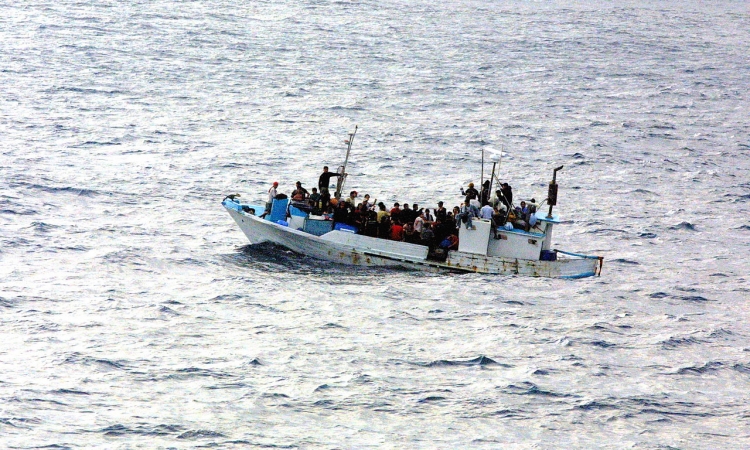Each smuggled migrant has an individual story that is difficult to fit neatly into categories. Profiling these stories can oversimplify migrants’ motivations, but can also help to understand key motivations behind the persistent high demand for smuggling services.
A distinction is often made between those who migrate with the primary motive of improving their economic perspective, so-called ‘economic migrants’, and those who escape persecution and conflict, refugees. While in some cases it is possible to draw a clear line between these two profiles, in other cases, the desire to migrate stems from a combination of different political, security and/or socio- economic needs where migration is perceived as a viable path to live in larger freedom from fear and poverty.
Both economic migrants and refugees may make use of smuggling services to plan or carry out their journey. The reasons for making use of a smuggler are different from those motivating a person to move from the community of origin. Migrants and refugees typically use a smuggler when facing obstacles to migrate.
The case of Syrian refugees is explicative. Syrians are generally eligible for international protection but do not have legal and safe channels to enter the EU territory. Many of the interviewed Syrians who had been smuggled into the European Union reported that they had applied for a visa at different European embassies in the Middle East before deciding to refer to a smuggler. Nevertheless - as pointed out by one of the respondents - the money they are sup- posed to have in their bank accounts in order to be issued a Schengen visa is equivalent to the fee they need to pay smugglers to arrange the sea crossing for themselves and their family members.
During the pre-conflict years and the first period of the armed conflict, Syrians faced visa restrictions only to enter the European Union. Typically, they could move to neighbouring countries without visas. For this reason, Syrians used smugglers only at the borders between Turkey and Greece, while land or air journeys to Turkey typically occurred regularly. Recent increased travel restrictions and risks connected to the war, however, seem to be behind the increased numbers of Syrians who use smugglers to reach the southern coast of Turkey from the northern coast of the Syrian Arab Republic.
West African migrants typically look for smuggling services only to cross the borders into North Africa, and the smuggling business flourishes in the hubs close to these borders. These migrants arrange the travel to the smuggling hubs in Niger or Mali on their own, while they typically use smugglers to enter Libya or Algeria. Whereas, the movement of West African citizens within the ECOWAS free movement area does not require the use of smuggling services, apart from those areas where the free movement is not adequately implemented.
Similar considerations apply for South America and the Southern Common Market (MERCOSUR) no visa arrangement. This seems to have reduced the demand for migrant smuggling for most South Americans moving within the region.
Legal migration options may be insufficient to address the demand for smuggling services. In some cases, would- be migrants and refugees can access legal channels for migration, but they are discouraged by the time required to obtain the requisite permissions. When it takes months or even years to make use of a legal pathway, migrants and refugees may prefer to resort to the services of smugglers, offering them immediate transport to their intended destination. Cost might also be a factor. Obtaining a passport and a visa can be expensive and might involve costly travel to the capital. Moreover, some may not be in possession of a valid birth certificate, which makes it very difficult to obtain a passport.
Legal migration restrictions and expense considerations are not the only reasons why some migrants choose to use smugglers. In some cases, migrants and refugees are attracted to travel by smugglers’ proactive recruitment and misinformation. Smugglers’ propaganda appears to be particularly effective in encouraging many to leave and to do so by using the smuggler’s services.81 Smugglers also promote the perception that irregular migration is cheaper than regular migration.82 Another reason why some choose smuggler services is that they might believe that smuggled migrants more readily find better jobs and wages. As will be presented later, active recruitment and marketing are key activities for smugglers to create demand and broaden their clientele.
IMAGE CREDIT: UN Navy
